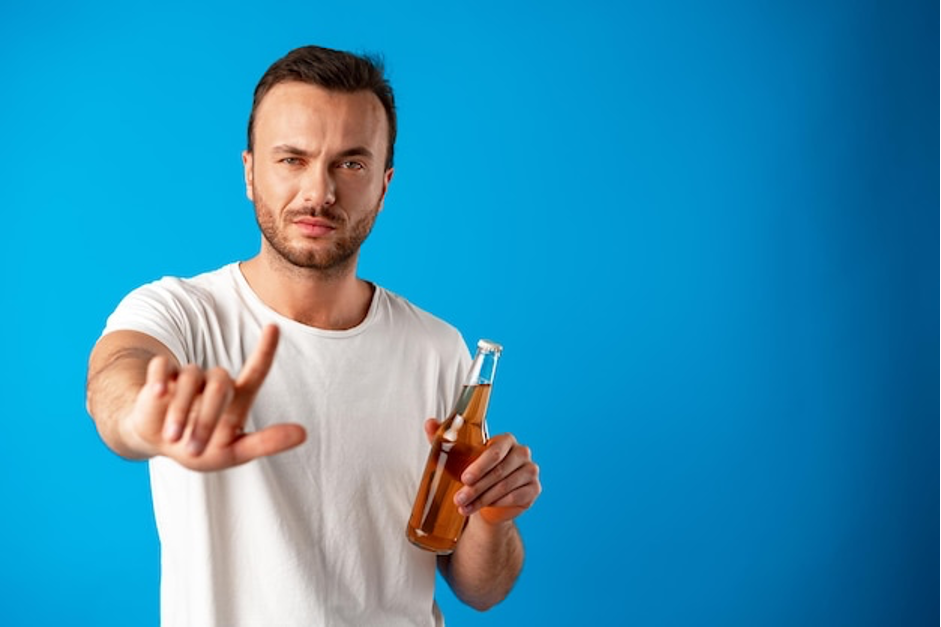
Alcohol is often the centre of social gatherings. These include weddings, parties, anniversaries, and celebrations. For some people, alcohol is not something that should only be relegated to gatherings. So, after a long day, they take a drink or two to help them unwind. People occasionally go through situations that unleash difficult emotions, and then they turn to alcohol to take the edge off.
However, for many people, whether they drink socially or at home, their drinking habits turn into a struggle with dependence. How do you draw the line if you have been drinking more than you should? How do you cut back or stop altogether?
The Effects of Drinking Too Much Alcohol
If you want to learn how to stop drinking, chances are alcohol consumption has already affected your life and health negatively. You may not sleep well, and you may notice memory lapses. Your anxiety is probably skyrocketing, and you somehow get into more conflicts with your loved ones than ever before.
If this has been happening to you, it is time to break free from the grip of alcohol and reclaim your life.
How Your Drinking Habit Works
Before you can stop drinking, you must admit to yourself that your drinking has become a habit that you have little to no control over. Your drinking habit is just like every other habit, consisting of four distinct stages:
- Signal (Cue)
A cue is the first factor that plays into a longstanding habit. You may hear a sound or be part of an interaction that signals your desire to drink. This desire is otherwise known as a craving. For instance, if you usually drink at after-work gatherings or parties, these situations will automatically make you crave more alcohol.
- Craving
Cravings allow your brain to anticipate the changes that come with drinking. So, when you drink, you alter your existing physical or emotional state. Because you may associate happiness and freedom with satisfying your craving, you act on the craving.
- Response
Giving in to the craving for alcohol is the actual habit you have. Your brain is pushing for you to satisfy your craving because it will create the sensation of satisfaction you are seeking every time you drink.
- Reward
Even though drinking comes with several negative consequences, your brain will focus on your altered physical and emotional state. When you keep drinking, your brain builds a path from the initial cue or signal to the ultimate reward, which is the satisfaction of your craving.
Every time you experience that initial signal or cue, your brain will trigger a craving, so you are encouraged to take another drink. By continuously performing the same action, you create a drinking habit.
How to Break Your Drinking Habit
You can use several strategies to help break a drinking habit.
1. Creating New Habits
Now that you know how habit-forming works, you can undo the process while learning how to stop drinking. You could also form new habits to phase out your unhealthy drinking habits.
Consider this: Your brain thrives on routine. Routine provides stability and predictability.
However, while a drinking habit is also a routine per se, it cannot benefit your brain, your health, or your life. So, you can use habit formation to create a new way of thinking and acting whenever you experience a drinking cue.
Science confirms that repetition strengthens neural pathways in the brain. When you create non-alcoholic routines and habits, you weaken the existing alcohol-related pathways. Your new habits will become automatic when you continue to work on healthy habit-forming strategies. While alcohol cravings will probably always affect you, it will become easier to resist them and maintain your sobriety.
How to Create a New Habit

If you always crave a beer after work or wine before bed, plan alternative activities for these times. These activities could include going to the gym, taking a walk, or taking some time out to meditate. You can also try healthy drinks in the place of alcoholic ones. This could include anything from fruit-infused sparkling water to herbal tea.
2. Gamifying the Challenge
Avoiding giving in to your alcohol cravings can be exceptionally challenging. If you turn the challenge into something fun, like a game, it might be easier to achieve your goals. For instance, you could track your progress on an app or in a journal and reward yourself for every milestone. If you struggle to get going with your no-alcohol mission, try to go for alcohol-free weekends first before stopping your drinking habit altogether.
You can create a points system for each alcohol-free day and use those points to reward yourself for reaching each goal.
3. Answering the Most Important Questions
While you work on finding ways to stop drinking, you need to answer the most important question: why do you want to stop drinking? Do you want to improve your health? Do you want to reconnect with alienated family members? Is there a bigger goal, like world travel or a dream job, that your drinking habit will impact?
The answers to these questions will motivate you to stay on the journey to sobriety. Write down your motivations and keep them where you will see them daily.
4. Taking Off Your Rose-Coloured Glasses
If you have been looking at alcohol as a party icebreaker or stress reliever, it is time to reframe your view. Cognitive reframing is a therapy technique that helps prevent and break down unhelpful thought patterns. By reframing your perception of alcohol, you can also do away with all the excuses and justifications you have for drinking.
5. Using Mindfulness and Self-Compassion
The road leading away from alcohol use is not an easy one. You will experience setbacks and cravings, and you will likely want to give up more than once. You can use mindfulness meditation to help regulate your emotions during this time, and be compassionate with yourself. Treating yourself kindly will make it easier to stay on track.
Break Your Drinking Habit With the Help of HARP
Whether you believe you are slightly more dependent on alcohol than you should be or fear that you may not be able to stop drinking, HARP can help you.
The HARP facility combines several science-backed therapies to help clients overcome cravings and other challenges on their journey to sobriety.
While you build new, healthy habits, a clinical team of doctors, counsellors, and psychologists will oversee your progress. You can also access an incredible outdoor setting to hike or enjoy the views. You can exercise and work on your new goals while staying connected to your loved ones.
If you are unsure of how serious your alcohol dependence is, consider completing the following quiz: On a scale of 0 to alcoholic, where am I?



